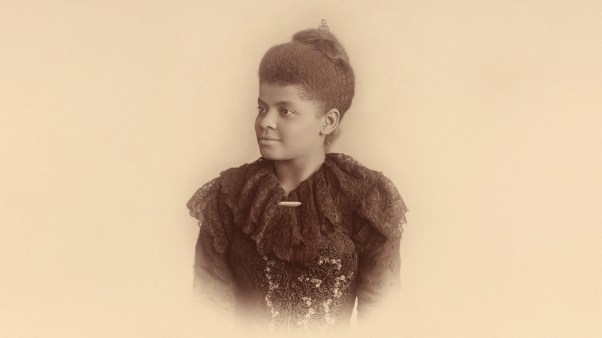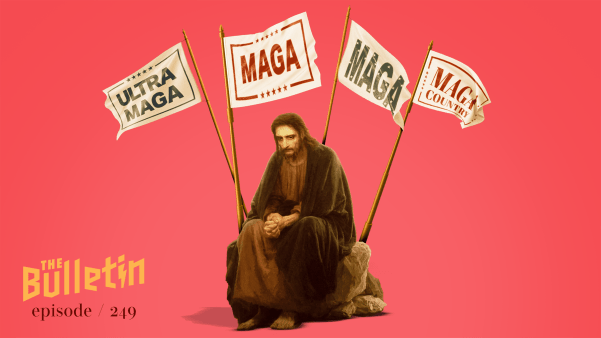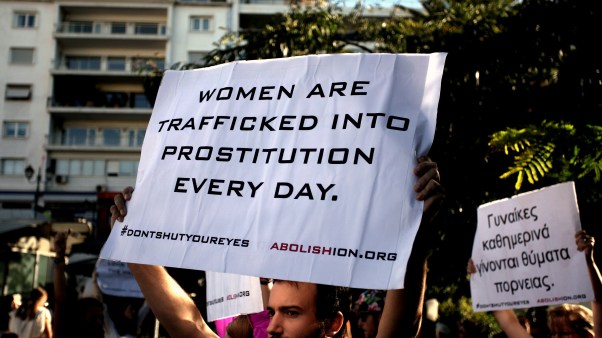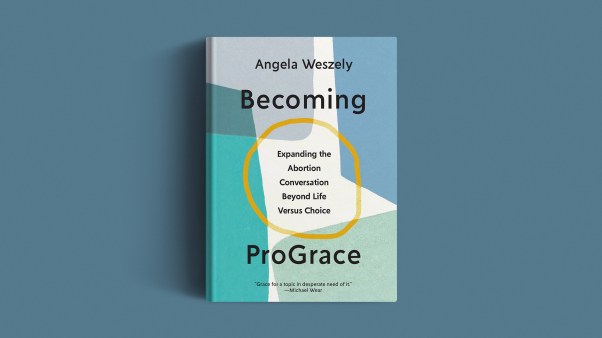When I think about the night of Jesus’ birth, the first picture that comes to mind is straight from my childhood. It’s like I’m peering into a snow globe manger scene. Hallmark Channel perfect, it’s clean and serene. Everyone is in the correct place. Snow falls softly, blanketing the hillside in a carpet of quiet. All is calm. All is bright. Give it a good shake, and nothing falls out of place. The snow gently swirls, then settles over the pristine couple and silent baby once again.
But that image is quickly crowded by another. Nearly 15 years ago, my husband and I lived in a dusty Chinese village on the outskirts of Beijing. We volunteered for four years at New Day Foster Home, a private, Christian nonprofit organization that—in those days, before the Chinese government limited the work of NGOs across the country—helped fund surgeries and provided long-term foster care for medically fragile orphans. We lived in an apartment complex about a mile from the organization’s campus, and most mornings we walked behind a flock of sheep and their shepherd on our way to work.
I recently reread what I wrote in my journal at the time, a description of that shepherd’s stable. You could smell it before you saw it. Fetid and filthy, the sheep crowded in at the end of a day of foraging for food. In the summer, flies buzzed. In the winter, sludge froze solid. I didn’t want to go near; it was too dirty.
I would pass the sheep and their shepherd, pitying him a little, silently thankful that my own job didn’t require me to mess around in muck. Around Christmas, I pictured my Savior born amid fresh, sweet hay in an inexplicably warm and comforting stable. The snow globe in my mind was just how I wanted to imagine Jesus’ entrance into the world. But the stable I walked past told the truth: Stables smell like dirty sheep.
With eyes then freshly opened to all that is broken and fallen in the world, I could not stop thinking of that contrast. My arms were full of children who had no parents and were diagnosed with life-threatening conditions. In that light, the snow globe Nativity scene no longer looked precious and pristine; it looked irrelevant and irreverent—a tawdry plastic approximation, likely made by forced laborers in China, no less, for the mass market of American Christian kitsch.
I wanted to throw a snow globe against a brick wall. That clean Nativity was fraudulent and fake and unable to hold the pain I saw. And without room for that, what was the point? I felt angry at myself for all the ways I’d cheapened and tamed the gospel. My own faith felt fake and plastic too.
The world I saw outside my window—indeed, the world I knew within my own heart—needed a God-become-flesh in circumstances far messier than those perfect little snow globes. And here was this shepherd and his sheep, upending my picture of the Incarnation and revealing that the lack was in my seeing, not in Christ’s coming.
In the years since, I’ve kept my eyes open for better pictures of the Incarnation. Like this migrant baby tucked into a suitcase, napping on the banks of the Rio Grande River—a sleeping baby born to a family running away from a past that offers no future.
Or this image of a baby being passed over barbed wire and barricades in the middle of the chaotic US evacuation from Afghanistan. (This child was reunited with his family after he received medical care from the American soldiers.)
 Courtesy of Omar Haidiri / AFP / Getty
Courtesy of Omar Haidiri / AFP / GettyJesus entered the world as the son of a Middle Eastern father who would take his family on the run to save his son’s life from King Herod’s murderous plans to preserve his own power (Matt. 2:13). And today Jesus enters a world where refugees still flee murderous tyrants.
Jesus entered the world with a mother who didn’t have the comforts of home or the care of her family upon his arrival. And today Jesus enters a world where some mothers still raise their kids on the streets.
There’s no way around the fact that incarnation means coming to a filthy and fetid world, just like that stable in China. Jesus came into a world where some babies are beloved and nurtured, while some babies are left on street corners or next to dumpsters and, if they survive at all, end up in places like the orphanage where we worked. He came into a world where young girls and boys are sold into prostitution and refugees spend their lives waiting in squalid camps. It’s a world where white picket fences hold together falling-apart marriages.
It’s a world with disease and mental illness. A fallen creation groans with earthquakes, floods, and fires. We’ve made a mess of our lives and our families and this world. And we live with the fallout of other people’s messes too. Drugs. Death. Destruction. Sorrow, unending sorrow. Flies and vultures buzz over little ones with swollen bellies. Sludge freezes solid and becomes a playground for barefoot children.
It is all too dirty, and yet he came near.
He came near to mess around in our muck. Jesus is God-made-flesh who doesn’t ask us to clean up the mess before he comes. He enters into our messes, always, always with us. He put on human skin, turning seemingly God-forsaken places into his holy temple (1 Cor. 6:19). He willingly emptied himself (Phil. 2:7), becoming a shepherd for you and me, a bunch of dirty sheep (John 10:11).
He lived and moved among people whose troubles he embraced. He wept when his friend died (John 11:35). He turned over tables when he saw vulnerable people being conned in the temple courts (Matt. 21:12–17). He looked with compassion on the widow whose son had died (Luke 7:13), on two blind beggars (Matt. 20:34), and on harassed and helpless crowds—the shepherdless sheep (Matt. 9:36). He didn’t leave us in our squalor but led us to green pastures—to healing, rescue, and restoration of our souls (Ps. 23).
I still remember the conviction I felt all those years ago as I tried to sidestep that Chinese man and his bedraggled flock. I saw the dirty sheep and pitied the shepherd. But I love a God who sees dirty sheep and tends them himself.
Carrie McKean is a West Texas-based writer whose work has appeared in The New York Times, The Atlantic, and Texas Monthly Magazine.













